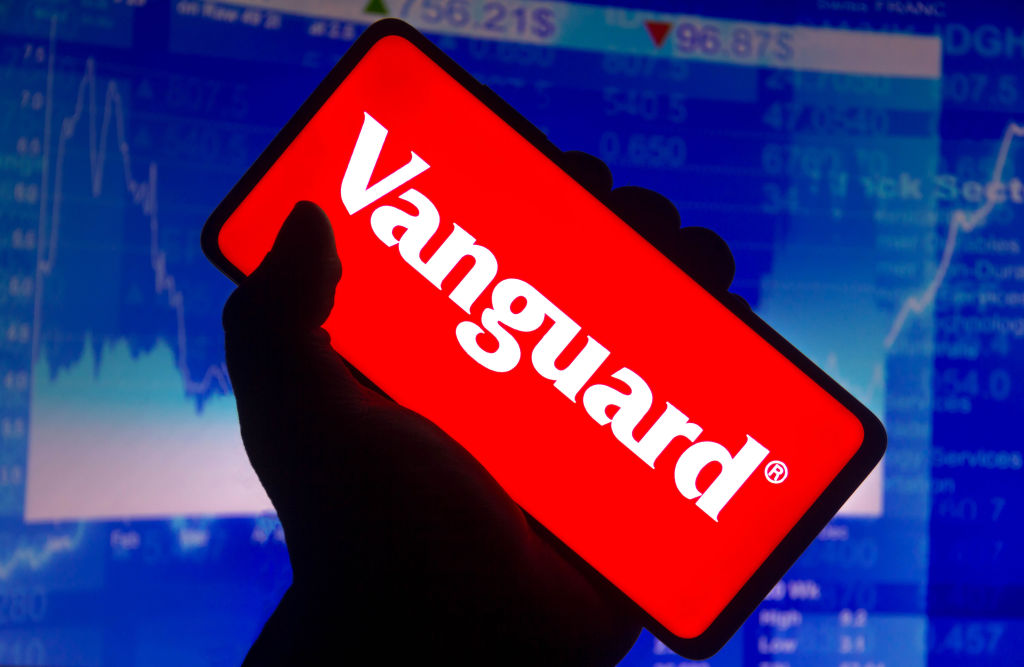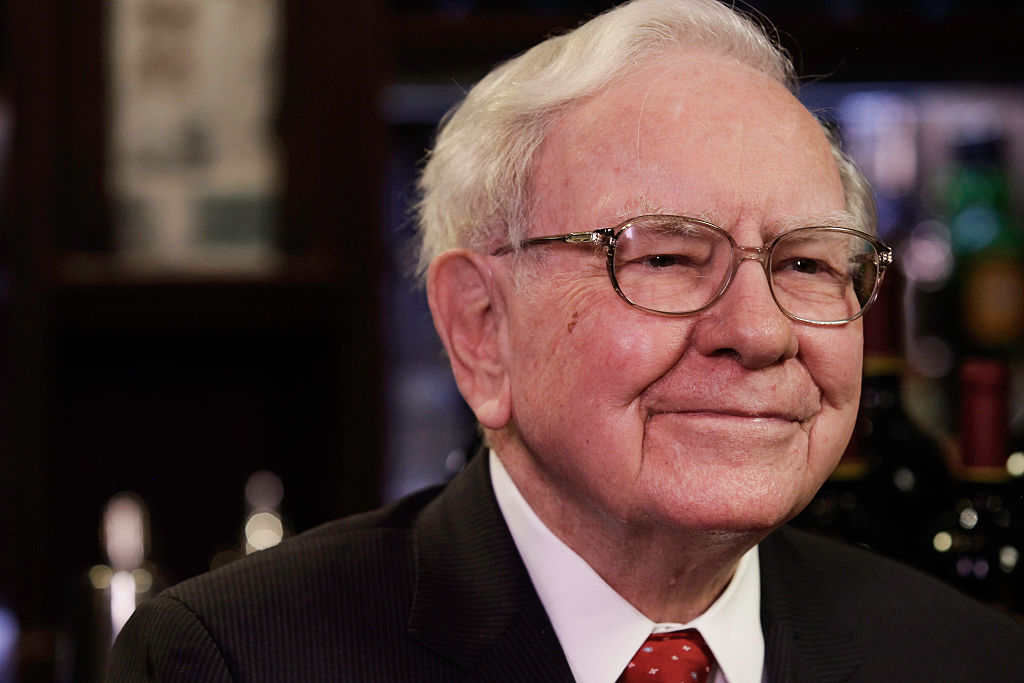Vanguard ETFs vs Mutual Funds: Which Are Better Investments?
Distinguishing Vanguard ETFs vs mutual funds is key for investors, considering Vanguard is one of the largest low-cost fund sponsors in the U.S.


Profit and prosper with the best of Kiplinger's advice on investing, taxes, retirement, personal finance and much more. Delivered daily. Enter your email in the box and click Sign Me Up.
You are now subscribed
Your newsletter sign-up was successful
Want to add more newsletters?

Delivered daily
Kiplinger Today
Profit and prosper with the best of Kiplinger's advice on investing, taxes, retirement, personal finance and much more delivered daily. Smart money moves start here.

Sent five days a week
Kiplinger A Step Ahead
Get practical help to make better financial decisions in your everyday life, from spending to savings on top deals.

Delivered daily
Kiplinger Closing Bell
Get today's biggest financial and investing headlines delivered to your inbox every day the U.S. stock market is open.

Sent twice a week
Kiplinger Adviser Intel
Financial pros across the country share best practices and fresh tactics to preserve and grow your wealth.

Delivered weekly
Kiplinger Tax Tips
Trim your federal and state tax bills with practical tax-planning and tax-cutting strategies.

Sent twice a week
Kiplinger Retirement Tips
Your twice-a-week guide to planning and enjoying a financially secure and richly rewarding retirement

Sent bimonthly.
Kiplinger Adviser Angle
Insights for advisers, wealth managers and other financial professionals.

Sent twice a week
Kiplinger Investing Weekly
Your twice-a-week roundup of promising stocks, funds, companies and industries you should consider, ones you should avoid, and why.

Sent weekly for six weeks
Kiplinger Invest for Retirement
Your step-by-step six-part series on how to invest for retirement, from devising a successful strategy to exactly which investments to choose.
If a frugal friend ever gives you an investing tip, it's likely they'll point you toward Vanguard exchange-traded funds (ETFs) or mutual funds.
It adds up: Vanguard is one of the largest and lowest-cost fund sponsors in the U.S. Vanguard's decades-long campaign to lower fees has actually helped bring fund costs down industry-wide.
Even if your heart is set on Vanguard, you might ask yourself, "Vanguard ETFs vs Vanguard mutual funds — which is the better investment?"
From just $107.88 $24.99 for Kiplinger Personal Finance
Become a smarter, better informed investor. Subscribe from just $107.88 $24.99, plus get up to 4 Special Issues

Sign up for Kiplinger’s Free Newsletters
Profit and prosper with the best of expert advice on investing, taxes, retirement, personal finance and more - straight to your e-mail.
Profit and prosper with the best of expert advice - straight to your e-mail.
The answer, as it almost always is when it concerns investing, is: "It depends."
A brief history of Vanguard
The history of Vanguard dates to 1929 with the Wellington Fund, which still exists today as both Investor Shares (VWELX) and Admiral Shares (VWENX).
The Wellington Fund is a member of the Kiplinger 25, our favorite no-load mutual funds, but the company itself didn't exist until 1975, when John C. Bogle founded The Vanguard Group. At the end of that same year, Vanguard launched the First Index Investment Trust, the first-ever index fund.
It would later be rebranded as the Vanguard 500 Index Fund (VFIAX). Today, VFIAX boasts more than $1.3 trillion in net assets to make it one of the largest mutual funds by assets.
At the time, index funds were a radical concept: Trusting a fund's assets to the performance of a benchmark rather than a team of professional managers.
Clearly, however, the investing world saw their incredible value, as index funds now command trillions of dollars in assets worldwide.
Vanguard ETFs vs mutual funds: What's the difference?
Distinguishing Vanguard ETFs vs Vanguard mutual funds comes down to the differences between all ETFs and mutual funds.
At a very basic level, mutual funds and ETFs operate the same way. Investors give their money to a provider in exchange for a small piece of ownership in the fund. Fund management then spends that money buying stocks, bonds and/or other assets depending on the fund's goals.
You enjoy any capital gains and/or dividends paid, but you also suffer when the fund drops in value.
However, mutual funds and ETFs have some significant differences.
For example, mutual funds only trade once per trading day: after the market close.
When you buy a mutual fund, you can spend any amount of money above the required minimum to buy shares — fund minimums run the gamut from $0 to $50 to $1,000 to $1 million and everywhere in between.
You'll almost always pay management fees (calculated as a percentage of your investment, charged annually and taken directly out of performance), and occasionally other fees, such as front-end sales loads (taken out of your initial investment) or redemption fees (charged when you sell your shares).
On the back end, mutual funds are structured in such a way that they can generate capital gains taxes from the buying and selling of assets within the fund.
Exchange-traded funds, as their name suggests, trade on exchanges just as stocks do, so you can buy them during normal and extended stock market trading hours.
There's no minimum investment — you can buy as little as one share, usually in the tens or hundreds of dollars. (If your brokerage has fractional shares, you can spend as little as $1 to buy part of an ETF.)
ETFs only charge management fees, and their back-end structure, which involves the in-kind creation and redemption of ETF units, helps minimize capital gains tax liabilities.
Exchange-traded funds tend to be cheaper than mutual funds for several reasons.
One, as mentioned above, they only charge management fees.
Two, their management fees tend to be cheaper than comparable mutual funds.
Three, most ETFs tend to be index funds, which generally cost less to operate than actively managed funds.
Let's be clear: Although most ETFs are index funds, some are actively managed, while some mutual funds are also index mutual funds.
One neat thing about Vanguard is that several (but not all) of their mutual funds are also offered as ETFs. That comes into play when deciding between Vanguard ETFs and mutual funds.
Why choose a Vanguard ETF over a mutual fund?
A Vanguard ETF is a better choice than a Vanguard mutual fund in some common circumstances.
You have less than the minimum required investment to own the mutual fund.
Popular Vanguard funds such as the Vanguard Total Stock Market Index Fund Admiral Shares (VTSAX) and the aforementioned VFIAX have $3,000 investment minimums.
If you only had, say, $2,000, you couldn't invest in either, but you could buy six shares of the Vanguard Total Stock Market ETF (VTI), which is floating around $330 per share right now.
You could buy three shares of the Vanguard S&P 500 ETF (VOO) — one of Kiplinger's best ETFs to buy — which currently trades around $616.
Vanguard offers both ETF and mutual fund versions of a fund, and the ETF version is cheaper.
Even if you can afford the investment minimum for a Vanguard mutual fund, you're typically going to absorb fewer fees by purchasing the Vanguard ETF instead.
This is most often the case for Vanguard's indexed products.
For instance, VTSAX charges a skinflint 0.04% expense ratio, or a mere $4 for every $10,000 you invest. But its ETF counterpart, VTI, charges just 0.03%.
That extra $1 savings on $10,000 invested might seem trivial. But when all else is equal (and it is here), always take the cheaper fund. Those savings add up.
Why choose a Vanguard mutual fund over an ETF?
There are two clear instances in which you would buy a Vanguard mutual fund instead of a Vanguard ETF:
You're interested in a Vanguard mutual fund that doesn't have an ETF counterpart.
Several Vanguard funds, such as Vanguard Wellington — an actively managed fund that invests in both equities and fixed income — don't have ETF versions.
If you want Wellington, you have to buy the mutual fund.
You're investing in a 401(k) or other retirement plan (such as some SEP IRAs) in which plans are limited to mutual funds.
While you can buy ETFs in virtually any brokerage account you can find, not all investment accounts allow for them.
Most 401(k)s have largely rebuffed the ETF trend, and depending on your provider, some other retirement accounts might not allow for them.
Vanguard, for instance, only offers mutual funds in multimember SEP IRAs.
Related content
- Vanguard Money Market Funds: What You Need to Know
- How to Find the Best Mutual Funds for Beginners
- Vanguard's Primecap Mutual Funds Reopen to Investors: What to Know
Profit and prosper with the best of Kiplinger's advice on investing, taxes, retirement, personal finance and much more. Delivered daily. Enter your email in the box and click Sign Me Up.
Kyle Woodley is the Editor-in-Chief of WealthUp, a site dedicated to improving the personal finances and financial literacy of people of all ages. He also writes the weekly The Weekend Tea newsletter, which covers both news and analysis about spending, saving, investing, the economy and more.
Kyle was previously the Senior Investing Editor for Kiplinger.com, and the Managing Editor for InvestorPlace.com before that. His work has appeared in several outlets, including Yahoo! Finance, MSN Money, Barchart, The Globe & Mail and the Nasdaq. He also has appeared as a guest on Fox Business Network and Money Radio, among other shows and podcasts, and he has been quoted in several outlets, including MarketWatch, Vice and Univision. He is a proud graduate of The Ohio State University, where he earned a BA in journalism.
You can check out his thoughts on the markets (and more) at @KyleWoodley.
-
 Quiz: Do You Know How to Avoid the "Medigap Trap?"
Quiz: Do You Know How to Avoid the "Medigap Trap?"Quiz Test your basic knowledge of the "Medigap Trap" in our quick quiz.
-
 5 Top Tax-Efficient Mutual Funds for Smarter Investing
5 Top Tax-Efficient Mutual Funds for Smarter InvestingMutual funds are many things, but "tax-friendly" usually isn't one of them. These are the exceptions.
-
 AI Sparks Existential Crisis for Software Stocks
AI Sparks Existential Crisis for Software StocksThe Kiplinger Letter Fears that SaaS subscription software could be rendered obsolete by artificial intelligence make investors jittery.
-
 Best Mutual Funds to Invest In for 2026
Best Mutual Funds to Invest In for 2026The best mutual funds will capitalize on new trends expected to emerge in the new year, all while offering low costs and solid management.
-
 The Most Tax-Friendly States for Investing in 2025 (Hint: There Are Two)
The Most Tax-Friendly States for Investing in 2025 (Hint: There Are Two)State Taxes Living in one of these places could lower your 2025 investment taxes — especially if you invest in real estate.
-
 How the Stock Market Performed in the First 6 Months of Trump's Second Term
How the Stock Market Performed in the First 6 Months of Trump's Second TermSix months after President Donald Trump's inauguration, take a look at how the stock market has performed.
-
 Vanguard Is 50! Here's How It Has Made Investing Better
Vanguard Is 50! Here's How It Has Made Investing BetterVanguard was established by John C. Bogle in May 1975, and the fund manager's impact on investing has been revolutionary.
-
 I Have $20,000 to Invest. What Should I Do?
I Have $20,000 to Invest. What Should I Do?We asked a financial expert to weigh in on where to invest $20,000.
-
 Warren Buffett Stocks: A Look at Berkshire Hathaway's Holdings
Warren Buffett Stocks: A Look at Berkshire Hathaway's HoldingsWarren Buffett's holdings are a diverse set of blue chips and lesser-known growth bets. Here, we look at Buffett's stock picks, as well as those of his lieutenants.
-
 Smart Ways to Invest Your Money This Year
Smart Ways to Invest Your Money This YearFollowing a red-hot run for the equities market, folks are looking for smart ways to invest this year. Stocks, bonds and CDs all have something to offer in 2024.
-
 Vanguard's New International Fund Targets Dividend Growth
Vanguard's New International Fund Targets Dividend GrowthInvestors may be skittish about buying international stocks, but this new Vanguard fund that targets stable dividend growers could ease their minds.
